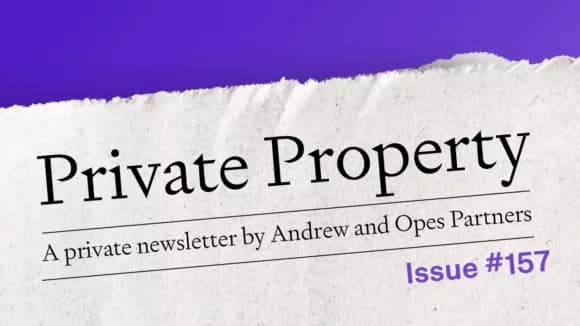
Property Investment
Property Investment
2 min read

Author: Andrew Nicol
Managing Director, 20+ Years' Experience Investing In Property, Author & Host
You’ve probably heard investors say: “It’s time in the market ... not timing of the market that counts.”
But is that just something investors (like me) say to make ourselves feel better about falling property prices?
Take a look at this graph.
The dark blue line shows the highest ever return you could have got buying a New Zealand property.
The light blue line shows the worst-ever returns you could have got.
And it’s all broken down by how long you owned the property for (e.g. 1, 2, 3+ years).
Let’s say you bought a property and planned to own it for just one year.
The best possible time to buy was August 2020. 1 year later, house prices were up 30.6%.
If you bought a $500k property back then, you could have been up over $150k.
That’s life-changing money – and it only took 12 months.
Worst time to buy? February 2022. One year later, prices were down 14%.
That could be $70k+ wiped out. In a year. Imagine explaining that to your partner.
That’s why buying and selling a property quickly is risky.
You could be way up. You could be way down.
What about if you buy a property and only plan to hold it for 3 years?
It’s not quite as risky as only buying for a year. But there are still lots of ups and downs.
The best time to buy a house (if you only planned to own it for 3 years) was in August 2002.
Over the next 3 years, property prices went up 17.5% per year (on average). That was the highest-ever 3-year return.
But, in the worst ever 3-year period, house prices fell 5% per year.
Do you see how as you hold the property for longer … there’s less of a difference between the best and the worst times to buy?
But owning a property for only 3 years … is still pretty risky.
Here’s where it gets interesting.
Hold for 10 years or more? Things get boring. In a good way.
You’ll likely have had some good years (where property prices went up).
But you’ll probably have had some bad years, too (where property prices went down).
And that’s why the highest ever return over a decade was 10.5% per year.
The lowest-ever return over a decade was 4.6% per year.
Look at these two lines. See how they get closer together.
That’s because as you hold … the benefits of good timing and the punishment for bad timing start to matter less.
That’s what I mean when I say that time in the market beats timing of the market.
Because if you’re only holding a property for a year, timing really matters.
But if you're in it for 10+ years, good timing doesn’t have the same big impact.
Property is a high-risk game in the short term.
If you buy and sell quickly … it’s a bit of a casino.
But the longer you stay in, the more those big ups and downs smooth out.
And this is exactly why here at Opes, I harp on about long-term investing.
Investors should plan to hold their properties for at least 10 years. Ideally 15+ years.
And if you did buy at the peak of the market, this last fact should make you feel better.
Even if you had the worst possible timing in NZ’s recent history and held for 15 years, your property would still have gone up +5.1% per year.
You can’t control the market. But you can control how long you’re in it. And that’s where the real power lies.
Managing Director, 20+ Years' Experience Investing In Property, Author & Host
Andrew Nicol, Managing Director at Opes Partners, is a seasoned financial adviser and property investment expert with 20+ years of experience. With 40 investment properties, he hosts the Property Academy Podcast, co-authored 'Wealth Plan' with Ed Mcknight, and has helped 1,894 Kiwis achieve financial security through property investment.
This article is for your general information. It’s not financial advice. See here for details about our Financial Advice Provider Disclosure. So Opes isn’t telling you what to do with your own money.
We’ve made every effort to make sure the information is accurate. But we occasionally get the odd fact wrong. Make sure you do your own research or talk to a financial adviser before making any investment decisions.
You might like to use us or another financial adviser